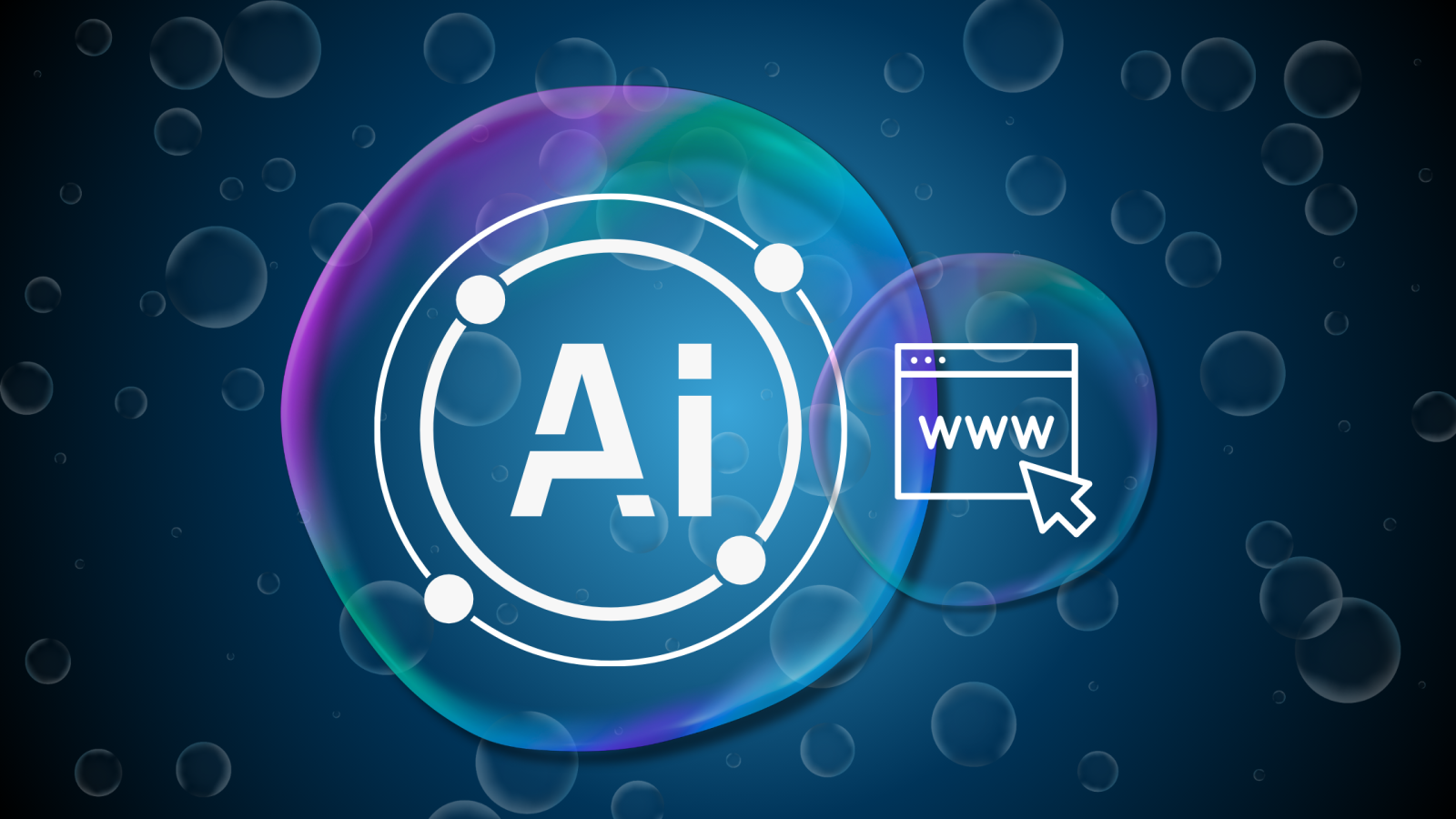Is AI the new “world wide web”?

Photo: Image made with Canva Pro

Back in the days of the dot-com era, anything online could become a hype-driven investment.
The big losses when the bubble burst are almost comical with the benefit of hindsight. Pets.com burned through millions of investor capital and collapsed a year after its IPO. Webvan, a grocery delivery service, lost $800 million. Some companies promised services they couldn’t deliver, like free one-hour delivery. Others simply weren’t able to compete with brick-and-mortar establishments that continued to be better value, like eToys.
It is hard not to see the parallels with AI, with over $3 trillion of global investment in datacentres alone. The big four – Meta, Amazon, Google, and Microsoft – are expected to spend over $750 billion in the next two years on the technology (per The Guardian). AI is currently being added into nearly everything, offering to write LinkedIn posts, optimise shopping lists, and run Amazon.
Featured Report
Social 2025 Navigating platforms for fan power
The biggest apps are in the process of disruption. TikTok’s uncertain future and Meta’s apps relaxing content restrictions and fact checking will constitute greater challenges for creators, advertisers, and audiences looking to use and benefit from these platforms.
Find out more…Where’s the money?
All this hype is still lacking results. As reported by TechCrunch, Meta’s latest earnings call saw the company’s bottom line heavily affected by AI spending for the first time, with no headline products to boast of. 95% of companies that have incorporated AI pilots have seen no improvements in their operations, per a recent study by MIT (via Forbes). According to Reuters, OpenAI, which is perhaps the leading company in the space, is billions away from profitability, with a likely IPO still on the horizon.
All this is against a backdrop of record low job openings across Western markets, contrasted by skyrocketing prices for the average consumer. As AI investment props up the stock markets, wealthy consumers are propping up consumption, with the top 10% of earners accounting for nearly half of all consumer spending in the US, as reported by Bloomberg.
Preparing for post-bubble
Being prepared means knowing what comes next, and then what will come after that. Here’s what we’re likely to see moving forward:
- More consumers will have less to spend. This means lower growth for paid products, but higher price points, as those who can afford to will have to make up the difference. Meanwhile, ad-supported entertainment will become more popular, with social and AI content being likely big winners for time and engagement.
- AI is going to get expensive. Those server farms won’t pay for themselves, and the “strangely circular” AI investment ecosystem can only go so far. It allegedly costs OpenAI millions in energy for users to say “please” and “thank you” (per The Standard), much less the cost of the start-ups building entire products using personalised GPTs. Once OpenAI goes public, shareholders are going to start demanding revenue leaks like that get plugged, and fast.
- The AI bubble will burst. The numbers as they are now just don’t add up, and there will be a necessary readjustment period. This is going to get messy, considering the capital wrapped up in the industry is many times larger than that of the dot-com bubble. Some AI companies will come out the other side, just as Yahoo, Google, eBay, and Amazon survived and thrived. Those companies were building infrastructure. The survivors of the AI bubble will be the owners of valuable infrastructure, not the ones creating frivolous consumer nice-to-haves. (Although, there are warning signs that AI infrastructure may not pan out long-term as well as cloud services – but that’s a topic for another day!)
One day, probably soon, the term “AI” will be just as obsolete as the phrase “World Wide Web”. We will have a plethora of services all using the technology in new, niche, and innocuous ways. There will be some winners, and some losers. But investing in something just because it’s “AI” is like going back in time and investing in the first thing you see that proudly proclaims to be “online”.

The discussion around this post has not yet got started, be the first to add an opinion.